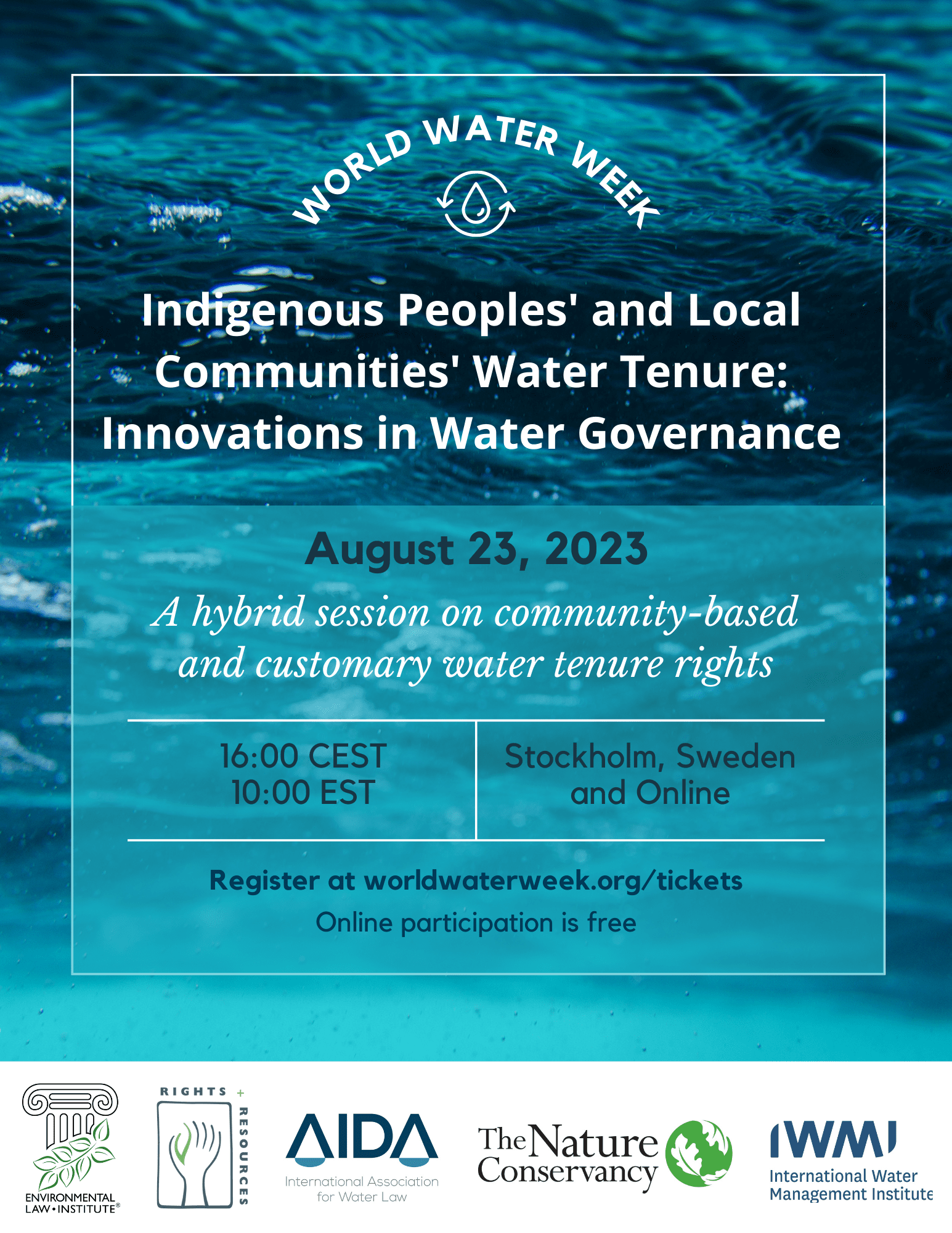Indigenous Peoples' and Local Communities' Water Tenure: Innovations in Water Governance
WATCH THE RECORDINGThis hybrid session at World Water Week highlightED evidence-based governance mechanisms for improving the recognition and protection of rights and facilitateD an interactive discussion on the principles and priorities for the forthcoming Global Dialogue for the Development of Principles of Responsible Governance of Water Tenure.
Background
For the governance of water tenure to be truly inclusive and sustainable, it must account for the diverse community-based tenure systems employed by Indigenous Peoples and local communities worldwide. Despite traditionally holding approximately half the world’s lands and the natural resources therein, communities legally own just slightly more than 11 percent of global land. The full extent of their freshwater rights is unknown.
Communities’ water tenure security therefore frequently hinges on the interface between customary laws and state laws that may or may not recognize these rights. While concerted advocacy has led to widespread acceptance of the centrality of legally recognizing and securing community-based land and forest tenure for advancing the Sustainable Development Goals (SDGs), the Paris Agreement, and international standards, Indigenous Peoples’ and local communities’ water tenure rights have yet to receive the same acknowledgment.
This hybrid session highlighted increasing advocacy efforts around community-based freshwater tenure, and showcased diverse water tenure research, assessment tools, and community experiences that demonstrate the critical role of water tenure in ensuring equitable, socially inclusive, and sustainable water governance.
Panelists also discussed how emerging principles and priorities drawn from this evidence base should inform the Global Dialogue on Water Tenure, launched at the UN Water Conference in 2023.
Simultaneous interpretation will be available in English and Spanish.

Agenda
Welcome and overview
- Chloe Ginsburg, Rights and Resources Initiative (RRI)
Case studies and assessment findings
- Lamine Samiké, Food and Agriculture Organization of the United Nations (FAO) KnoWat Senegal
- Samwel Nangira, Maasai, Tanzania
- Carlos Alberto, OPIAC, Colombia
- Caitlin Doughty, The Nature Conservancy
- Jessica Troell, Environmental Law Institute (respondent)
Introducing the Global Dialogue for the Development of Principles of Responsible Governance of Water Tenure
- Benjamin Kiersch, FAO
Facilitated panel discussion: Indigenous and local community perspectives
- Carlos Alberto, OPIAC, Colombia
- Samwel Nangira, Maasai, Tanzania
- Lamine Samaké, FAO KnoWat Senegal
- Daryl Vigil, Jicarilla Apache Nation; Water & Tribes Initiative, Colorado River Basin
- Lena Yanina Estrada Añokazi, Researcher UNESCO Chair at the Sustainability Institute
Q&A with audience, wrap-up and way forward
